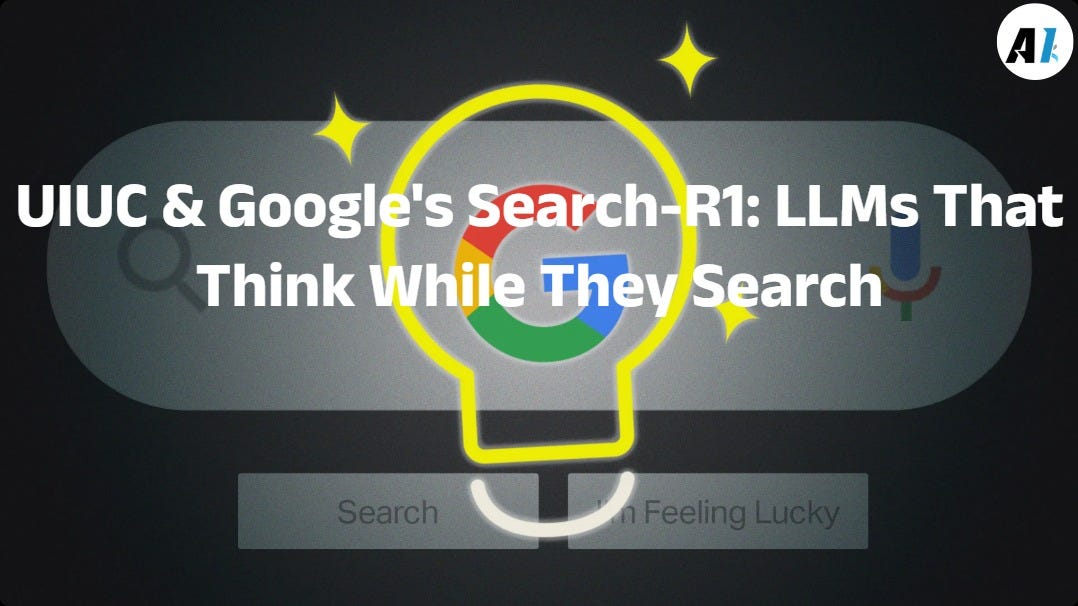UIUC & Google Launch Search-R1: LLMs Now "Think While Searching" with Fluid Reasoning
Search-R1: RL framework enabling LLMs to dynamically search & reason. Outperforms RAG by 41% with seamless search integration. Open-source.
"AI Disruption" Publication 5900 Subscriptions 20% Discount Offer Link.
DeepSeek-R1 demonstrates the immense potential of reinforcement learning in enhancing model reasoning capabilities, particularly in settings where the model can learn to organize responses more rationally without requiring human-annotated reasoning processes.
However, such models lack real-time access to external data sources. When certain critical information is absent from the training corpus, the reasoning process often fails due to knowledge gaps.
Meanwhile, another research direction—Retrieval-Augmented Generation (RAG)—attempts to address the above issue by incorporating external search engines. Existing RAG methods are primarily divided into two categories:
Prompting-based methods: These guide large models to invoke search engines directly within the prompt. While this approach requires no additional training, it has clear limitations: large models may lack the ability to interact effectively with search engines, such as knowing when to trigger a search or what keywords to use, often leading to unstable or redundant search behaviors.
Supervised Fine-Tuning (SFT)-based training methods: These involve constructing high-quality datasets to train models to learn rational search invocation strategies. Such methods offer greater adaptability but face scalability challenges: on one hand, building high-quality datasets that cover diverse reasoning paths is extremely costly; on the other hand, since search operations are non-differentiable, they cannot be directly incorporated into gradient descent optimization, hindering the effectiveness of end-to-end training.



